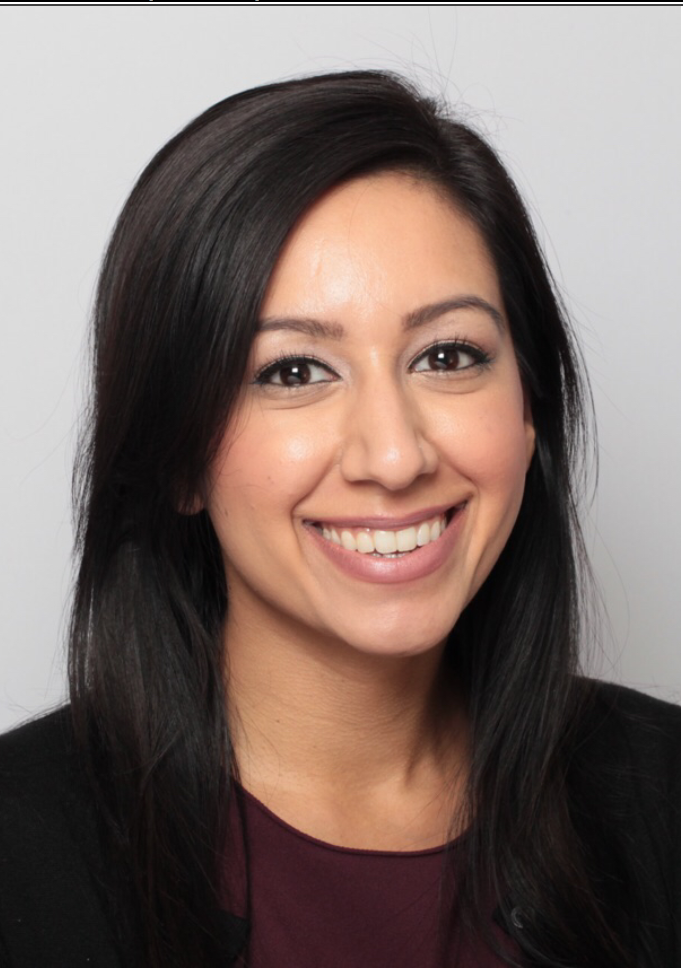The MiNDS of our Alumni: Dr. Sabrina Syan
AUTHOR: Lana Vedelago

Dr. Sabrina Syan earned her PhD from the Neuroscience Graduate Program in 2017. She is now completing a second PhD in Clinical Psychology at McMaster. Dr. Syan took some time out of her busy schedule to talk with us about her experiences.
Tell us a bit about where you are now and what you’re working on.
I’m currently a PhD Student in the Psychology Graduate Program, Research and Clinical Training Stream, at the Peter Boris Centre for Addictions Research. I'm studying under the supervision of Dr. James MacKillop.
Could you elaborate on how you went from being a Neuroscience graduate student to the position you have today?
My PhD research while in the Neuroscience Graduate Program focused on using structural and functional magnetic resonance imaging to study the trait- and state-based pathology of bipolar disorder and co-morbid premenstrual dysphoric disorder in women. I also investigated the influence of hormonal fluctuations associated with the menstrual cycle on brain structure and function. I thoroughly loved my PhD in neuroscience, and it instilled in me a passion for research and clinical work within the populations that I was studying.
What made you decide to pursue neuroscience? If you hadn't gone into neuroscience, what career path do you think you would have liked to pursue?
I completed my undergraduate thesis at the Women’s Health Concerns Clinic, which is where I was bitten by the research bug. I remember reading an article about the menopausal transition as a window of vulnerability for the development of major depressive disorder and other psychiatric conditions in women. I thought it was pretty interesting how the brain was influenced by hormonal fluctuations – this really piqued my interest. Dr. Minuzzi taught me how to use neuroimaging techniques to study the brain and I fell in love with learning about the brain. I discovered how interesting clinical psychology was through my PhD in neuroscience, so to be honest if I hadn’t gone into neuroscience, I have no idea what type of career path I would have chosen. I’d like to think I would have lived out my childhood dreams of becoming a Spice Girl.
Do you have any advice for current Neuroscience graduate students?
Sure! I have a few pieces of advice:
Firstly, I know the experience can be stressful, but really try to enjoy the experience. Each and every setback with your data and set of reviewer comments is an opportunity for you to learn and grow. Ultimately, each of these experiences brings you closer to your goal and helps you become a well-rounded scientist.
Secondly, It’s okay to not know everything. Remember that your supervisors know as much as they do because they have experience. This is your chance to build that experience and expertise – they do not expect you to enter grad school with all of the knowledge you’ll have once you graduate.
Finally, try your best to find time to write on a regular basis, and be protective of that time. All of my supervisors (previous and current) really emphasize that graduate school is the best time to focus on writing and publishing papers because you have large blocks of protected time.
What is your favourite memory from graduate school?
There are way too many to count. One of the most salient experiences that I carry with me is when I’d finished up a study visit with a participant that had a diagnosis of bipolar disorder. She became tearful, thanked me for showing interest in studying the disorder, and told me that it gave her hope for her future. I think moments like that really help put research into perspective.
Is there anything else that you would like to add, or a story that you would like to share about your experiences?
I think the only thing I’d want to emphasize is that it’s important to do research in something that makes you excited and that you’re passionate about – find something you love and make it your own. Also, it’s important to have supportive mentors. I’ve really been blessed in that department; I never miss an opportunity to thank my supervisors Dr. Benicio Frey and Dr. Luciano Minuzzi. They were (and continue to be) truly amazing mentors and I’m eternally grateful to them. This also includes my current supervisor Dr. James MacKillop in the Psychology PhD Program, who is a brilliant researcher and very supportive mentor.